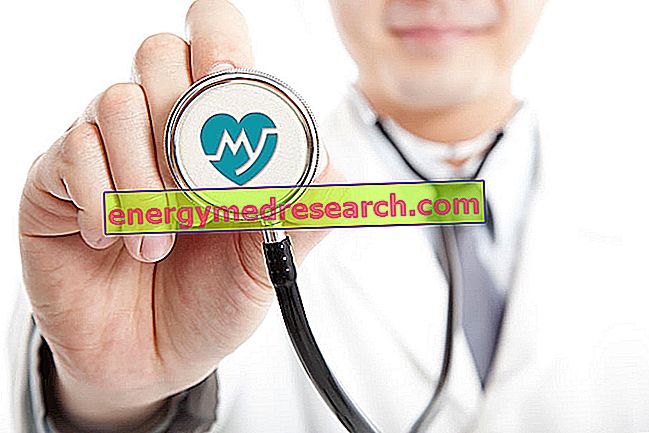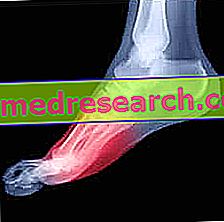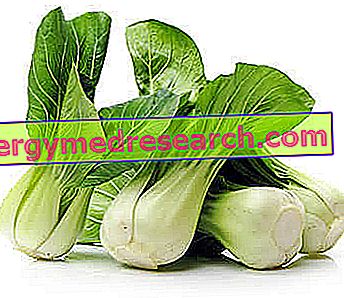
Information on ARGININA tablets - EUROSUP
Food supplement based on L-arginine
FORMAT
80 cps bottle
COMPOSITION
L-Arginine
Stabilizer: microcrystalline cellulose
Anti-caking agents: silica dioxide and magnesium stearate
One tablet contains: L-Arginine 1000 mg
Product features ARGININA tablets - EUROSUP
L-Arginine 1000mg - This amino acid is partly taken through the diet and partly derives from the normal protein turnover. In poor supply conditions, our body, mainly in the liver and kidneys, can increase its synthesis, starting from another amino acid, citrulline.

L-arginine is very present in peanuts, hazelnuts, legumes and meat (from 2 to 4 gr / 100 grams of product), therefore easily introduced through a balanced diet.
The biological functions and the possible applications of this amino acid are numerous:
- Plastic function, involved in normal protein synthesis;
- Central intermediate in the urea cycle, fundamental for the detoxification from amino nitrogen (derivative product of amino acid oxidation);
- Glucogenic function: it is in fact one of the glucogenic amino acids, able to regenerate glucose in the liver, starting from α-ketoglutarate;
- It is part of creatine synthesis;
- Precursor of the most powerful vasodilator available to us: nitric oxide (NO);
- Enhances immune defenses;
- Preserves spermatogenesis, embryonic development and the correct organic homeostasis.
Therefore, arginine supplementation is tested in the treatment of various diseases, from cardiovascular and atherosclerotic to metabolic, from erectile dysfunction to tumor prevention.
POTENTIAL applications in sports ARGININA tablets - EUROSUP
In sports, this supplement is widely used, with different purposes:
- Increase GH (growth hormone) synthesis;
- Stimulate NO secretion, and improve muscle oxygenation;
- Reduce the feeling of fatigue and improve athletic performance.
Rationalization of integration in sports - ARGININA tablets - EUROSUP
There are several studies concerning the use of arginine as a supplement in sports, with very contradictory results. Recent studies seem to confirm the ergogenic role of this amino acid; show that supplementation for 4 weeks, at about 3 g / day, can improve fatigue resistance or how, in association with antioxidants, it can raise the anaerobic threshold by 16%; furthermore, they show how the concomitant intake of creatine can also improve the maximum force peak.
Much confusion, on the other hand, is observed with regard to the "hormonal" effects of this amino acid. In literature, in fact, there are studies dated 1966/1967, in which the intravenous infusion of arginine (12/30 g), increased endogenous GH levels, and 2 subsequent studies (1981 and 1999) which recorded respectively an increase of GH and insulin following the administration of 1.5 g of Arginine and 1.5 g of lysine, and to the administration of arginine, 15 g / day, for 14 days in marathon runners. A recent 2010 study supported this hypothesis, recording an increase in GH and IGF1, in trained individuals subjected to intense exercise, with arginine and ornithine supplementation for 3 weeks.
However, there are numerous studies that show the opposite, showing no benefit in hormonal terms, in individuals subjected to physical exercise and arginine supplementation from 2.8 to 5.7 g / day for 4 weeks, or following acute supplementation of L arginine.
Critical note, in both senses, is the low number of individuals enrolled for these studies, which do not allow, even statistically speaking, to draw conclusions.
The situation can still be more complex if we consider this study, "Growth hormone, arginine and exercise", according to which: Arginine can stimulate the release of GH in resting individuals, or with endogenous deficiencies; Arginine taken during physical activity reduces the potential release of GH, which would be obtained from physical activity alone.
In conclusion, intense exercise seems to be the best possible precursor of GH.
Recommended use by the company
Swallow 2 tablets a day with water or other liquid of your choice, 20-30 minutes before meals or before bedtime, on an empty stomach. Do not chew the product
Mode of use in sports - ARGININA tablets - EUROSUP
Various studies, carried out on athletes, use quite various dosages, from 2 to 8 grams per day (better results obtained at dosages of 3 gr / day), to improve physical performance and reduce the sensation of fatigue.
The dosages used to increase the secretion of GH are generally higher and can even reach up to 15 grams per day, a dose to which however side effects may occur.
Administration is generally carried out for at least 2 weeks, as apart from one study, there is no benefit from the acute administration of this amino acid.
Administration on an empty stomach is preferred, to avoid competitive phenomena in intestinal absorption.
Administration of arginine before going to bed is justified by a study ONLY showing that oral intake of 250 mg / kg of arginine aspartate can increase GH levels by 60%.
How to optimize your business - ARGININA tablets - EUROSUP
Studies show that the simultaneous administration of creatine and arginine can determine a better ergogenic boost, with a relative improvement in muscular endurance and peak strength.
At the same time, the intake of arginine and antioxidants appears to increase the anaerobic threshold by 16%, delaying the feeling of fatigue.
Another possible association is with branched chain amino acids; in fact, a study shows that the supplementation of 2 g of BCAA with 0.5 g of Arginine, can reduce proteolysis following intense muscular exercise.
ARGININA Tablets Side Effects - EUROSUP
The most common side effects, recorded in large doses, are vomiting, diarrhea and abdominal cramps at doses above 9 grams per day.
Massive doses, generally higher than 30 g, can originate nephrotoxicity, hypotension and headaches.
Precautions for use ARGININA tablets - EUROSUP
The product is contraindicated in cases of renal or hepatic disease, cardiovascular disease and / or hypertension, in pregnancy, during lactation and under 12 years and adolescents not yet trained.
This article, elaborated on the critical re-reading of scientific articles, university texts and common practice, is for informational purposes only and is therefore not a medical prescription. It is therefore always necessary to consult your doctor, nutritionist or pharmacist before starting to use any kind of supplement . Further information on the critical analysis of ARGININA tablets - EUROSUP.
| BIBLIOGRAPHY |
Amino Acids. 2009 May; 37 (1): 153-68. Epub 2008 Nov 23. Arginine metabolism and nutrition in growth, health and disease. Wu G, Bazer FW, Davis TA, Kim SW, Li P, Marc Rhoads J, Carey Satterfield M, Smith SB, Spencer TE, Yin Y. Curr Opin Clin Clin Metab Care. 2008 Jan; 11 (1): 50-4. Growth hormone, arginine and exercise. Kanaley JA. Ann Pharmacother. 2001 Jun; 35 (6): 755-64. L-arginine in the management of cardiovascular diseases. Cheng JW, Baldwin SN. Risk assessment for the amino acids taurine, L-glutamine and L-arginine. Shao A, Hathcock JN. Regul Toxicol Pharmacol. 2008 Apr; 50 (3): 376-99. Epub 2008 Jan 26. Review. J Nutr. 2007 Jun; 137 (6 Suppl 2): 1681S-1686S. Arginine and immunity. Popovic PJ, Zeh HJ 3rd, Ochoa JB. Chronic but not acute oral L-arginine supplementation delays the ventilatory threshold during heart failure patients. Doutreleau S, Mettauer B, Piquard F, Schaefer A, Lonsdorfer E, Richard R, Geny B. Can J Appl Physiol. 2005 Aug; 30 (4): 419-32. Use of amino acids as growth hormone-releasing agents by athletes. Chromiak JA, Antonio J. Nutrition. 2002 Jul-Aug; 18 (7-8): 657-61. Review. Arginine and ornithine supplementation increases growth hormone and insulin-like growth factor-1 serum levels after heavy-resistance exercise in strength-trained athletes. Zajac A, Poprzecki S, Zebrowska A, Chalimoniuk M, Langfort J. J Strength Cond Res. 2010 Apr; 24 (4): 1082-90. Arginine and antioxidant supplement on performance in elderly male cyclists: a randomized controlled trial. Chen S, Kim W, Henning SM, Carpenter CL, Li Z. J Int Soc Sports Nutr. 2010 Mar 23; 7 (1): 13. [Epub ahead of print] Creatine, arginine alpha-ketoglutarate, amino acids, and medium-chain triglycerides and endurance and performance. Little JP, Forbes SC, Candow DG, Cornish SM, Chilibeck PD. Int J Sport Nutr Exerc Metab. 2008 Oct; 18 (5): 493-508. No effect of short-term arginine supplementation on nitric oxide production, metabolism and performance in intermittent exercise in athletes. Liu TH, Wu CL, Chiang CW, Lo YW, Tseng HF, Chang CK. J Nutr Biochem. 2009 Jun; 20 (6): 462-8. Epub 2008 Aug 15. Int J Sport Nutr. 1993 Sep; 3 (3): 298-305. Failure of commercial oral amino acid supplements to increase serum growth hormone concentrations in male body-builders.Lambert MI, Hefer JA, Millar RP, Macfarlane PW . [Effect of L-arginine supplementation on human growth hormone and insulin-like growth factor in adults] Fayh AP, Friedman R, Sapata KB, Oliveira AR. Arq Bras Endocrinol Metabol. 2007 Jun; 51 (4): 587-92. Portuguese. Oral arginine attenuates the growth hormone response to resistance exercise. Collier SR, Collins E, Kanaley JA. J Appl Physiol. 2006 Sep; 101 (3): 848-52. Epub 2006 Jun 1. Adverse gastrointestinal effects of arginine and related amino acids. Grimble GK. J Nutr. 2007 Jun; 137 (6 Suppl 2): 1693S-1701S. Review. Oral arginine does not stimulate basal or augmentation exercise-induced GH secretion in either young or old adults. Marcell TJ, Taaffe DR, Hawkins SA, Tarpenning KM, Pyka G, Kohlmeier L, Wiswell RA, Marcus R. J Gerontol A Biol Sci Med Sci. 1999 Aug; 54 (8): M395-9. Br J Clin Pharmacol. 1999 Mar; 47 (3): 261-6. Pharmacokinetics of intravenous and oral L-arginine in normal volunteers.Tangphao O, Grossmann M, Chalon S, Hoffman BB, Blaschke TF. Branched-chain amino acids and arginine supplementation attenuated skeletal muscle proteolysis induced by moderate exercise in young individuals. Matsumoto K, Mizuno M, Mizuno T, Dilling-Hansen B, Lahoz A, Bertelsen V, Münster H, Jordening H, Hamada K, Doi T. Int J Sports Med. 2007 Jun; 28 (6): 531-8. Epub 2007 May 11. Erratum in: Int J Sports Med. 2007 Jul; 28 (7): 63 |



